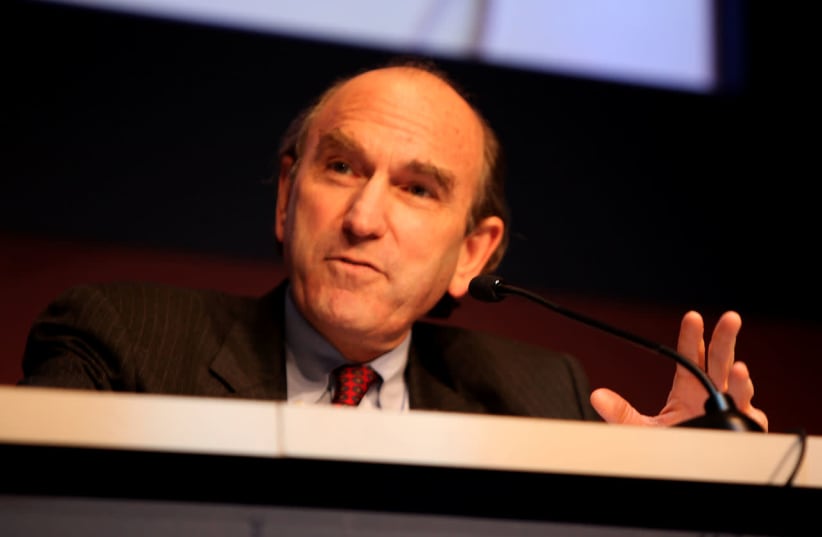US Secretary of State Mike Pompeo announced that Elliott Abrams would lead US efforts on Venezuela days after the US recognized an opposition leader as the interim president of the country. Abrams, a former official in the George W. Bush administration is seen as a hawk on foreign policy and his appointment was greeted with praise and controversy, conjuring memories of the Bush years and the Reagan administration’s meddling in Latin America.
Abrams was deputy assistant to the president and deputy national security advisor under George W. Bush, tasked mostly with Middle East policy. A keen supporter of the US-Israel alliance, he authored a book on the subject and is a senior fellow for Middle Eastern studies at the Council on Foreign Relations. While there he recently penned a blog about the erosion of democratic institutions under Mahmoud Abbas’s tenure. He has written for The Jerusalem Post in the past, critiquing the Iran deal.
According to CNN he was passed over in 2017 for a senior appointment because of his criticism of Trump and also because Steve Bannon objected to Abram’s more interventionist views on foreign policy. Some of Trump’s supporters have urged a more isolationist brand of US policy, seeking to end foreign wars in places like Syria. These supporters dovetail in their views with Trump critics who have accused the administration of seeking “regime change” in Venezuela. However Pompeo and National Security Advisor John Bolton are both tough critics of the Venezuelan Maduro administration and support Juan Guaido, president of the National Assembly, who has declared himself president. Canada, Argentina, Brazil and other countries have lined up behind Guaido while Russia, Turkey, Cuba and Bolivia have supported Maduro. Now the Trump administration seeks to wade into the Venezuela issue, even as Caracas seeks to shut the US embassy there.
Abrams has been tapped as the US foreign policy czar tasked as a special envoy for the Latin American country. What that means is not entirely clear. In brief remarks on Friday he reportedly said that the crises in Venezuela was “deep and difficult” and looked forward to getting to work.
Reaction to the Abrams appointment was greeted with praise in some sectors. US Senator Marco Rubio supported it. “he is a tough and experience foreign policy expert with a long history of supporting democracy, liberty and the national interests of the United States,” Rubio tweeted.
But the Associated Press’s Joshua Goodman noted that Abrams was an architect of the US invasion of Panama in 1989. Oddly Jon Scwharz, who writes for The Intercept, claimed that Abrams was supportive of Noriega’s crackdown on the opposition. “Elliot Abrams led the efforts to make sure Noriega, then still a top US ally, faced no consequences.”The Independent in the UK accused Abrams of backing “death squads in Latin America” in the 1980s. Other commentators and critics argued that Abrams was involved in supporting human rights abuses in El Salvador in the 1980s and supporting the Contras in Nicaragua in the 1980s. Others claimed Abrams was a resurrection of a “neocon” agenda of the Bush years when the US sought to spread democracy around the world. Under Trump there has been a retreat from these kinds of activist democracy-spreading policies. But Venezuela may be an exception.
It remains to be see if Abrams will be able to make the special envoy title into an active role and coordinate affairs, or merely pay lip service to US policy. In August the State Department also appointed an envoy to coordinate the administration’s activities regarding Iran, a post that has been hampered by changing US policies on Syria and other issues that make it difficult to guide policy from the State Department when the White House, Pentagon and other parts of the US government seem to have differing views.
...
